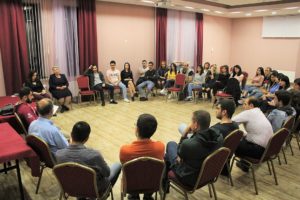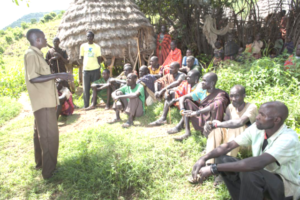C.1. Community Mediation
EDITIONS
Continuous editions.
TARGET
Third Sector Professionals (as public and private social support services, NGOs, Associations), Legal Professionals and Practitioners. Researchers working in the field of Social Sciences. Professionals from the Education sector, and Teachers in particular. Social Entrepreneurs, Social Workers, Doctors and Cultural Mediators.
OBJECTIVE
This course aims at giving practical knowledge and tools for the resolution of community conflicts, often arising from easily identifiable social and cultural misunderstandings. The scope is to provide useful strategies for the development of fundamental capabilities to face and address conflict situations both on a personal and on a professional level.
PROGRAMME
I MODULE (One Day)
– Definition of Community Mediation: involved actors, the will to mediate, building a promise of mediation (one hour)
– Fundamentals on restorative justice, of the concept of safe community, conflict perception, conflict definition (one hour)
– Fundamentals on the concepts of community, integration, tolerance, voluntary participation, bullying, conflict, verbal violence and abuses, marginalization (one hour)
– Understanding the points of view of the other people: techniques of conflict resolution (two hours)
– Mediation techniques and voluntary participation (one hour)
– Practical strategies in using mediation and intervention techniques (one hour)
– Legal framework (one hour)
II MODULE (One Day)
– The ethnography of the community mediation practice applied to local projects and programmes: neighboroods, buildings, apartments, schools, and places of work (two hours)
– The awareness of own answers to the conflict (one hour)
– The awareness of the other people’s answers to the conflict (one hour)
– The symbology of restorative justice and of retributive justice (one hour)
– The “winners” and the “losers” in mediation (one hour)
– Exercise: identification and management of biases and stereotypes as cause of conflicts in the communities (two hours)
TRAINING METHODOLOGY
The course is actually provided on line. Considering the need not only to provide knowledge and information to the participants, but also to involve them in practical activities and to support them through Q&A sessions, it is provided through on line platforms and tools requiring the simultaneous attendance of the participants. Deferred and non-synchronous classes may be organised if appropriate.
TRAINING MATERIAL
At the beginning of each module, the participants will receive in electronic format the slides that will be used. During classes, websites and useful links will be indicated to the attendees, and will be used for the development of different practical exercises.
 DURATION OF COURSE
DURATION OF COURSE
The course will last 16 hours.
NUMBER OF PARTICIPANTS
Minimum number of participants: 5.
Maximum number of participants: 15.
In this page – Image Credits:
1. By Taken by Mher Bekaryan for Wikimedia Armenia – Wikimedia Armenia, CC BY-SA 4.0, httpss://commons.wikimedia.org/w/index.php?curid=85750907
2. By USAID in Africa – Community conflict resolution, Public Domain, httpss://commons.wikimedia.org/w/index.php?curid=70818146

